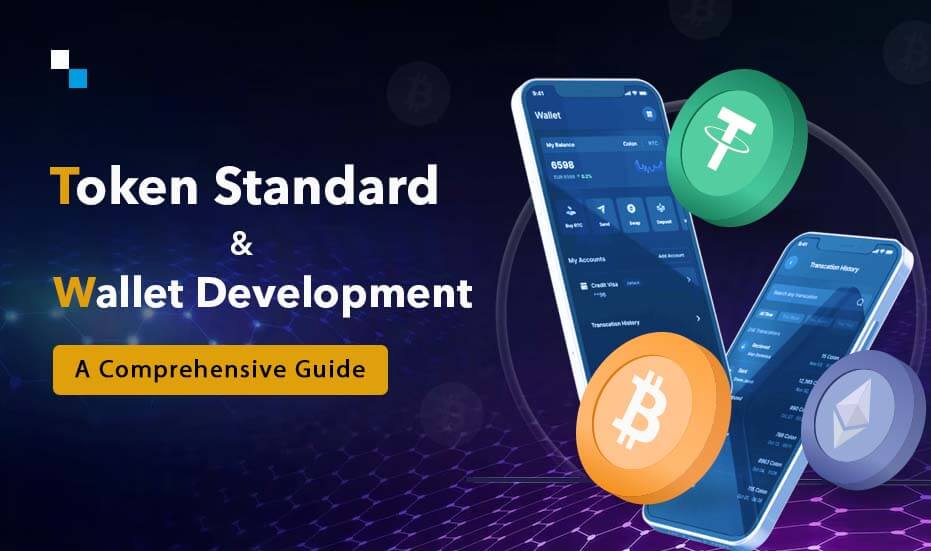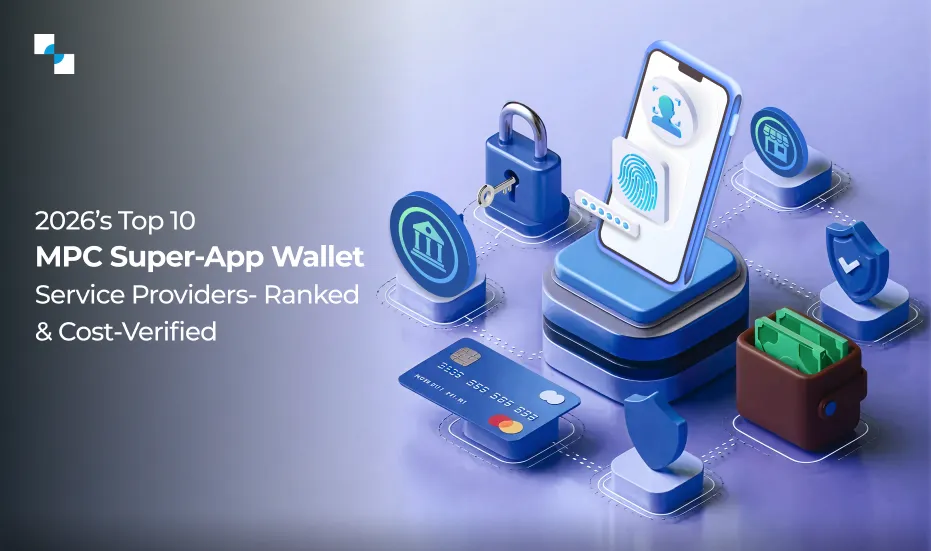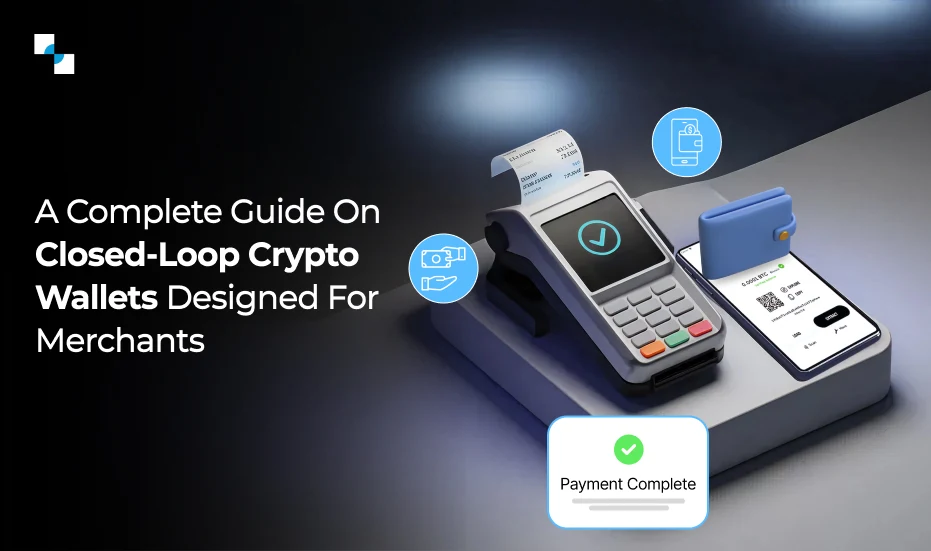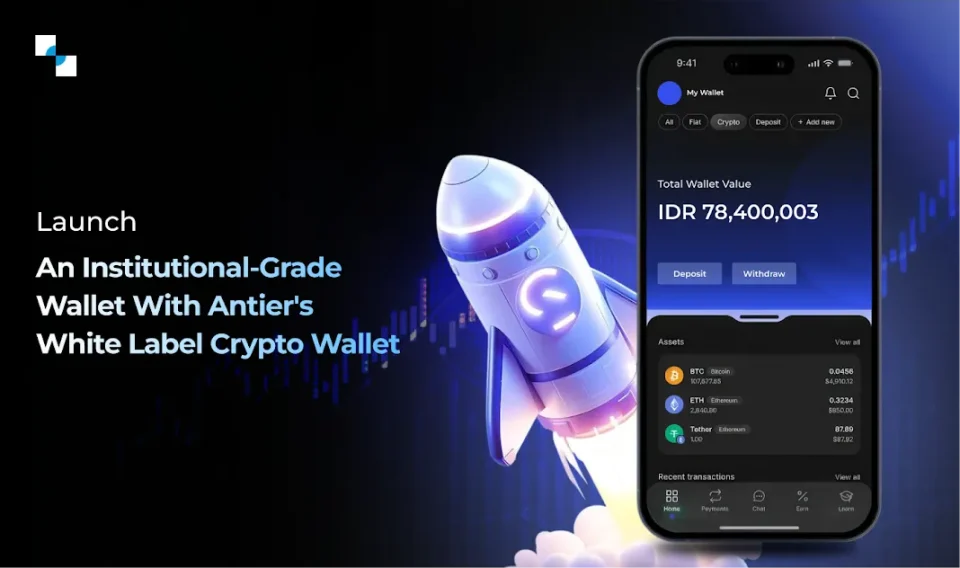An Introduction to Token Standards & Their Impact on Wallet’s Functionality
In the rapidly growing crypto landscape dominated by cryptocurrencies, the importance of wallets cannot be underestimated. These digital protectors keep your assets safe and help you perform transactions smoothly and effortlessly. However, With the introduction of different token standards like ERC-20, ERC-721 & BEP-20, a fast transition has been observed in the wallet segment.
In this captivating blog, we have highlighted how these token standards affect the compatibility and functionality of the wallet. These solutions are incorporated with the assistance of wallet development professionals to help crypto enthusiasts navigate the complicated path of digital finance easily. Get ready for a thrilling journey into the sphere where wallets and token standards converge!
Token Standards and Their Impact on Wallets: Unveiling the Significance
Token standards are the rules and protocols that monitor digital asset behavior on a specific blockchain. The standards ensure that different applications like wallets and exchanges are compatible, enabling swift interoperability in the crypto space. Wallet development experts consider these standards while developing the wallets. Let us shed some light on three primary token standards and their implications on the wallet’s compatibility and functionality.
ERC-20 Token Standard : The Building Block of Tokenization
ERC20(Ethereum Request for Comments) is the most widely acceptable token standard on Ethereum. It comprises a set of rules and functions developers follow while building the fungible tokens. Wallets are compatible with ERC20 standard support leading cryptos like Bitcoin, Litecoin, and utility and governance tokens.

Prominent Ethereum Wallet Development Solutions that support ERC-20 tokens are:
- Metamask : Metamask is a browser extension that interacts with Ethereum-based decentralized applications(dApps) and is used to manage ERC20 Tokens hassle-free.
- My Ether Wallet : A web-based wallet that is compatible with the Ethereum blockchain and ERC-20 Tokens.
- Ledger Nano S/X : Ledger Nano S/X is a hardware wallet that offers robust security and supports ERC20 Tokens, allowing users to store assets offline.
ERC-721 : Empowering Non-Fungible Tokens (NFTs)
ERC721 is a non-fungible token standard that has revolutionized the realm of digital collectibles and digital assets. These tokens can’t be interchanged, with each digital asset possessing unique traits. The wallet supporting these token standards allows users to manage and interact with NFTs such as Artwork, virtual real estate, and avatars.
Leading wallet development solutions that support ERC721 Tokens include:
- Metamask : Apart from ERC-20, the wallet can manage ERC-721 tokens and allows you to participate in NFT marketplaces.
- Trust Wallet : The wallet supports ERC-20 & ERC-721 tokens, enhancing the wallet experience of NFT enthusiasts.
- Enjin Wallet : The wallet is exclusively designed for gamers. The platform supports ERC-721 tokens and holds the gaming NFTs of the users.
BEP-20 : Binance Smart Chain’s Token Standard
Binance Smart Chain introduced BEP-20 Token as the token standard. It was combined with the Ethereum standard to provide cross-platform compatibility. The tokens are compatible with the Binance ecosystem, such as Binance wallets and dApps. Wallets supporting BEP20 Tokens help users manage tokens on Binance Smart Chain and participate in activities performed on decentralized exchange platforms.
Popular BEP20 wallet development solutions that support BEP20 tokens have been discussed below:
- Binance Smart Chain Wallet : BSC Wallet is a browser extension wallet solely designed for Binance Chain, allowing users to keep and manage their BEP20 tokens.
- Trust Wallet : Trust wallet is a multi-chain wallet, and supports both ERC-20 AND BEP-20 Tokens, enabling users to carry out Ethereum and Binance Smart Chain transactions.
TRC-20 Token Standard
The TRC-20 token standard is a protocol the TRON blockchain uses to build and manage tokens. It is just like the ERC-20 token standard and consists of a pre-defined set of rules that allows developers to build tokens compatible with the TRON network. TRON wallets and platforms can store, transfer, and manage these tokens, enhancing their interoperability and functionality.
Popular TRC-20 wallet development solutions that support TRC-20 tokens include:
- TronLink : TronLink is a web-based wallet used effortlessly and integrated with an in-built exchange.
- Clever : A mobile wallet supporting activities like staking and voting.
- Trust Wallet : A multi-currency wallet that is compatible with Android & iOS devices.
- Guarda : A non-custodial wallet that provides multi-currency support.
- Atomic Wallet : A multi-currency wallet with built-in exchange and staking features.

Once you choose a TRC20 wallet, you can easily create an account and store your tokens. Keep your private keys safe and secure so you can access your funds anytime.
Step-by-Step Development Process: Wallet and Token Standards
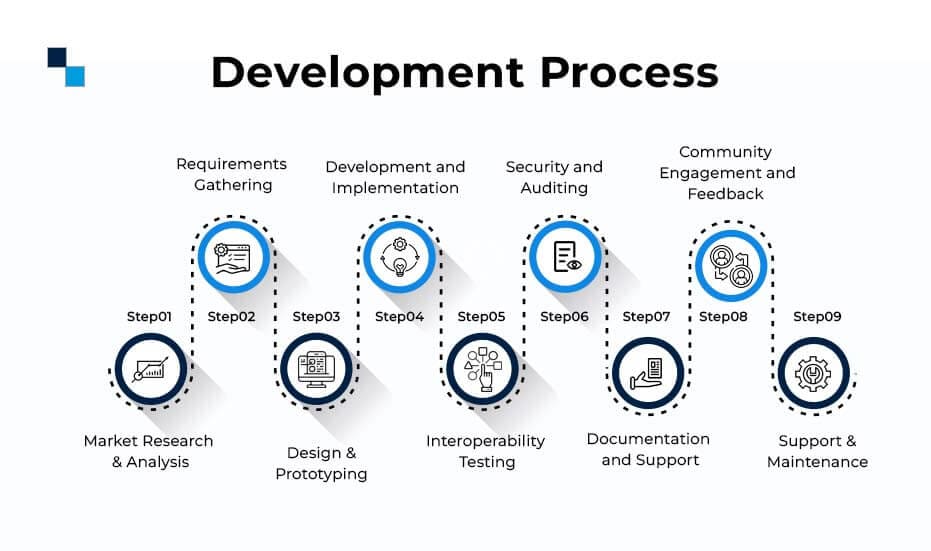 Step 1 : Market Research & Analysis
Step 1 : Market Research & Analysis
- Analyze the crypto market thoroughly, including the recent wallet solutions and token standards.
- Determine the advantages and drawbacks of existing wallets and token standards
- When analyzing, user preferences, pain points, and emerging trends are considered.
Step 2 : Requirements Gathering
- Indulge with businesses and potential users to determine their requirements and expectations.
- Know the vital features and functionalities that the new wallet must offer.
- Prioritize requirements as per their impact and feasibility.
Step 3 : Design & Prototyping
- Prototypes of wallet and token standards are created to give a look and feel of the wallet.
- Design a user interface that offers ease of use and accessibility
- Create a token standard framework emphasizing compatibility and security.
Step 4 : Development and Implementation:
- The wallet development must be performed as per design and compatibility requirements.
- Ensure the token standards comply with industry best practices and security measures.
- Perform regular code reviews and testing to determine bugs and vulnerabilities.
Step 5 : Interoperability Testing
- Ensure the wallet undergoes rigorous testing to ensure compatibility with token standards and blockchains.
- Verify seamless token transactions and interactions with different blockchain protocols.
- Check the cross-chain compatibility and interoperability.
Step 6 : Security and Auditing
- Thorough research and audits are performed to determine and eliminate potential vulnerabilities.
- Encryption and security protocols are implemented to shield user funds and data from unauthorized access.
- It ensures that the solution complies with security standards and best practices.
Step 7 : Documentation and Support
- A complete document on the wallet and the token standard is created, primarily the user guides and developer documentation.
- Provide responsive customer support to highlight user inquiries and issues quickly.
Step 8 : Community Engagement and Feedback
- Interact with the crypto community to obtain feedback on wallet and token standards.
- The software is updated continuously, considering user feedback and changing market dynamics.
Step 9 : Support & Maintenance
- The wallet and token standards are occasionally updated and improved to align with advanced technologies and user needs.
- Make sure that the wallet development company integrates new features and improvements for the smooth working of the wallet.
Wrapping Words
Developers and users must stay updated on the latest token standards and wallet features as the cryptocurrency ecosystem evolves. By embracing wallets that support diverse token standards, individuals can unlock the full potential of the digital asset revolution and participate in the ever-expanding world of cryptocurrencies. Consult Antier, a trial-blazing wallet development company that develops token-standard compatible wallets for start-ups and established businesses. Their commitment to innovation and excellence helps users experience enhanced crypto compatibility and functionality. By implementing standards like TRC-20, ERC-20, and more, the wallets bring ease of use and accessibility to the crypto space. Schedule a demo by contacting our subject matter experts today!


